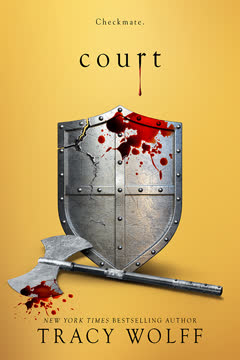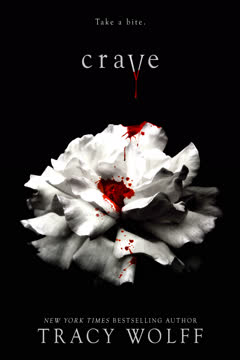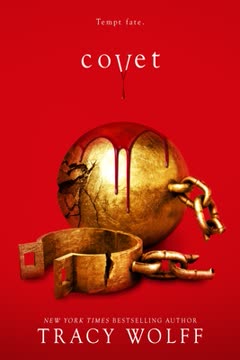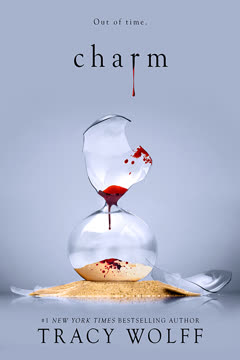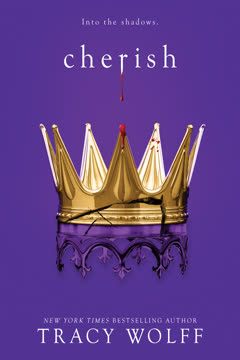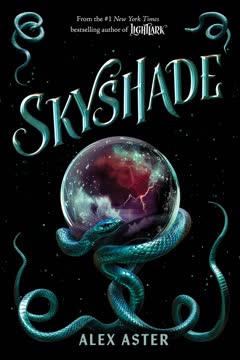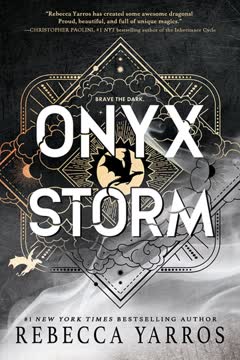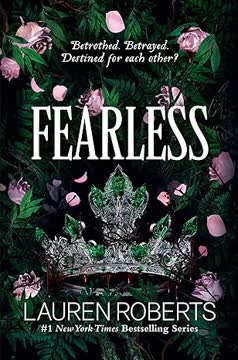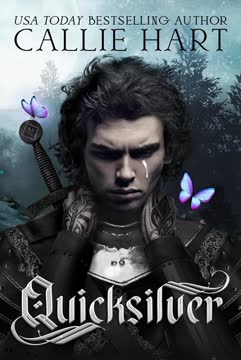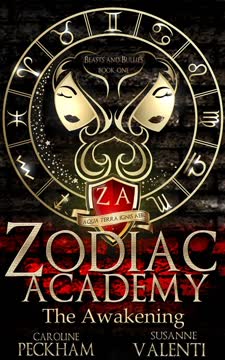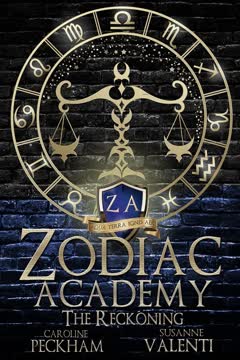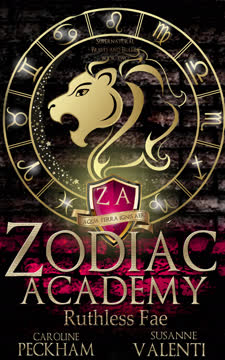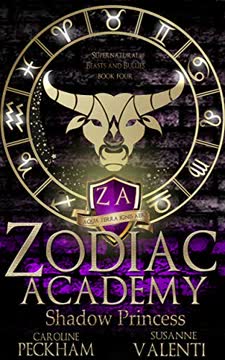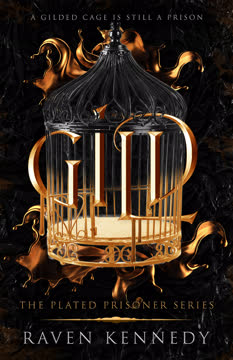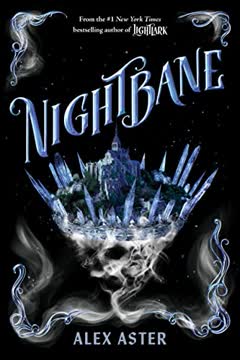Plot Summary
Shattered Crowns, Shifting Loyalties
Grace and her friends return to Katmere Academy to find it destroyed, the students and faculty kidnapped by the vampire king, Cyrus. The group reels from loss—Flint's injury, Luca's death, and the realization that their sacrifices may have been for nothing. Tensions flare as blame and grief divide the once-united friends, especially as Hudson shoulders guilt for not using his devastating powers to save everyone. The group's unity is tested, and the cracks in their relationships threaten to shatter their ability to fight the greater evil. Amidst the ruins, they must decide whether to trust each other and how to move forward in a world where every alliance is suspect and every victory feels hollow.
The Gathering Storm
As the group debates their next move, news arrives that Cyrus is draining the kidnapped students' magic, putting their lives at risk. The urgency to act is palpable, but so is the exhaustion and trauma from recent battles. The friends are forced to make impossible choices—notify grieving families, risk betrayal by old allies, and decide who to trust. The threat of Cyrus's growing power looms, and the group's internal divisions make them vulnerable. Grace and Hudson's relationship is strained by guilt and fear, while the others struggle with their own losses and doubts. The storm of war is gathering, and the friends must find a way to unite before it's too late.
Broken Bodies, Broken Trust
The aftermath of battle leaves physical and emotional wounds. Flint's amputation and the loss of friends weigh heavily, while accusations fly about who could have done more. Hudson's struggle with his destructive abilities isolates him, as he fears becoming a monster or failing those he loves. Grace tries to hold the group together, but guilt and grief threaten to overwhelm her. The friends are forced to confront the reality that sometimes, even the greatest power cannot save everyone—and that the cost of survival may be their own humanity.
The Gargoyle King's Secret
Grace is drawn into a vision of the ancient Gargoyle Court, where she meets Alistair, the gargoyle king—and her ancestor. She learns that she is the heir to a lost legacy, the queen of a people thought extinct. The Court is frozen in time, its army trapped by a curse and a god-killer poison. Alistair reveals that only Grace, with her unique lineage and powers, can free them. The weight of this destiny is crushing, as Grace realizes that her choices will determine the fate of her people and the outcome of the coming war.
Court of Stone and Memory
Grace and Alistair walk the halls of the Gargoyle Court, reliving its former glory and the tragedy that befell it. She learns of the telepathic bond between gargoyles and their king, and the burden of hearing the pleas of a dying people. The revelation that the army is not dead but trapped gives Grace a new sense of purpose, but also a new fear—can she live up to the legacy she's inherited? The Court's memory becomes a rallying point, a symbol of what could be restored if she succeeds.
The Army That Waits
Grace discovers that the Gargoyle Army is not lost but suspended in time, awaiting a leader to free them. The key is the God Stone, a powerful artifact hidden within the Court and protected by the loyal general, Chastain. To claim it, Grace must prove herself worthy—not just in battle, but in heart. The army's fate is tied to her choices, and the cost of failure is extinction. As she struggles with self-doubt and the expectations of her people, Grace must decide what kind of queen she will be.
Skeletons in the Night
The Court is besieged nightly by a relentless army of skeletal monsters—fallen gargoyles cursed to rise again and again. The only way to end their suffering is for Hudson to use his soul-destroying power, at great personal cost. Each night, he dies thousands of deaths, losing a piece of himself to save the living. The horror of this endless cycle tests the group's resolve and Hudson's sanity, forcing Grace to confront the true price of leadership and love.
The Impossible Trials
To obtain the Tears of Eleos—the only cure for the god-killer poison—Grace and her friends must survive the Impossible Trials, a deadly series of magical challenges. The Trials test their minds, bodies, and hearts: puzzles, illusions, monsters, and betrayals. They face their worst fears, lose friends to violence and sacrifice, and are forced to choose between victory and compassion. In the final trial, Grace's refusal to kill a cursed beast—choosing mercy over violence—breaks the curse and earns them the elixir they need.
Blood, Sand, and Sacrifice
The group returns to face Cyrus, only to be captured and forced to power his god-making ritual. Drained of their magic and hope, they watch as he ascends, becoming a monstrous god. Grace, nearly broken, finds strength in her heritage and the love of her friends. She embraces her demigod power, merging chaos and earth, and restores her friends' magic. The final battle is brutal, with the Gargoyle Army arriving just in time to turn the tide. Sacrifices are made, and the cost of victory is measured in blood and tears.
The God Stone's Price
With the God Stone in hand, Grace must decide Cyrus's fate. She uses the Crown to strip him of his power, rendering him mortal but immortal—condemned to live as a powerless human for a thousand years. The Gargoyle Army, once frozen, is freed and restored. The battlefield is cleared, and the survivors mourn their dead. Justice is served, but the scars of war remain.
The Rise of Chaos
Grace is crowned queen of the Gargoyle Court, her powers fully awakened. She forges a new path for her people, vowing to protect the innocent and build a world where paranormals and humans can coexist. The Bloodletter and Alistair are reunited, and old wounds begin to heal. Grace's friends find new purpose, and the bonds forged in battle become the foundation of a new era.
The Last Stand
In the aftermath, the friends gather to honor the fallen and celebrate their hard-won peace. Grace and Hudson, scarred but stronger, look to the future together. The group reflects on the journey—their losses, their victories, and the lessons learned. The world is changed, and so are they. The story ends not with a final battle, but with the promise of new beginnings and the hope that, together, they can face whatever comes next.
The Queen's Choice
Grace must reconcile her mistakes and the pain she's caused with the responsibilities of leadership. She learns that true strength lies not in power, but in compassion and the willingness to sacrifice for others. The Gargoyle Army accepts her as their queen, and she forges a new legacy—one built on trust, unity, and the courage to do what is right, even when it is hard.
After the Storm
Months later, Grace and Hudson have built a new life together, balancing the demands of leadership with the joys of love and friendship. The world is still scarred, but healing. The friends gather, old wounds slowly mending, and look to the future with hope. The story ends with the promise that, whatever challenges come, they will face them together—stronger, wiser, and unbreakable.
Characters
Grace Foster
Grace is the emotional and moral center of the narrative—a young woman thrust into a world of magic, war, and impossible expectations. As the last living gargoyle and heir to a lost legacy, she struggles with self-doubt, guilt, and the crushing weight of leadership. Her journey is one of transformation: from a grieving, uncertain girl to a powerful queen who learns to embrace her heritage, her powers, and her right to choose mercy over violence. Her relationships—with Hudson, her friends, and her people—are marked by fierce loyalty, compassion, and the willingness to sacrifice for others. Grace's greatest strength is her heart, and her story is one of learning that true power lies not in domination, but in love and forgiveness.
Hudson Vega
Hudson is Grace's mate and the most powerful vampire of his generation, burdened with the ability to disintegrate anything—and anyone—with a thought. His relationship with power is fraught with guilt, fear, and self-loathing, as he struggles to reconcile his destructive abilities with his desire to protect those he loves. Hudson's love for Grace is both his salvation and his vulnerability, and his journey is one of learning to accept help, forgive himself, and find hope in the darkness. His wit and sarcasm mask deep wounds, and his willingness to sacrifice himself for others is both heroic and tragic. Hudson's arc is a study in the cost of power and the redemptive potential of love.
Jaxon Vega
Jaxon, Hudson's brother and Grace's former mate, is defined by loss, loyalty, and the struggle to find his place in a world that has taken everything from him. Scarred by betrayal and the deaths of friends, Jaxon's journey is one of healing and reconciliation—especially with Hudson, as the brothers move from rivalry to mutual respect. Jaxon's protectiveness and sense of duty drive him, but he must learn to let go of the past and embrace a future shaped by new bonds and hard-won wisdom.
Macy
Macy, Grace's cousin and best friend, is the emotional glue of the group—her optimism and humor a balm in dark times. Beneath her cheerful exterior, Macy carries deep wounds from the loss of her mother and the betrayals of war. Her journey is one of growing into her own power, learning to set boundaries, and finding strength in vulnerability. Macy's loyalty is unwavering, and her magic is both a weapon and a source of healing.
Flint
Flint, the dragon shifter, is marked by physical and emotional scars—his lost leg a symbol of the cost of war. His grief and anger often manifest as sarcasm or lashing out, but beneath the surface is a fierce loyalty to his friends and a deep need for connection. Flint's arc is one of learning to forgive, to accept help, and to find purpose beyond pain. His relationship with Jaxon is especially poignant, as the two move from rivalry to something deeper.
Eden
Eden is a dragon shifter whose strength and wit mask a deep well of pain and determination. She is a fighter, both on the battlefield and in her personal life, and her loyalty to her friends is unshakeable. Eden's journey is one of embracing her own worth, learning to trust others, and finding hope in the aftermath of loss.
Remy
Remy is a powerful warlock with the ability to see possible futures, a gift that is both a blessing and a curse. His enigmatic nature and dry humor hide a deep loneliness and the burden of knowing too much. Remy's arc is one of learning to let others in, to accept help, and to find meaning in the present rather than being trapped by what might be.
Dawud
Dawud, a werewolf from Syria, is defined by loyalty to family and a quiet strength that grows throughout the story. Initially uncertain and overshadowed by older, more powerful paranormals, Dawud proves their worth through intelligence, bravery, and a willingness to learn. Their journey is one of self-discovery and the forging of new bonds.
Isadora (Izzy) Vega
Isadora, the secret daughter of Cyrus and the Crone, is a soul siphon and demigod whose life has been shaped by betrayal, isolation, and the need to prove herself. Her relationship with power is complex—she is both a weapon and a victim, struggling to find her own identity beyond her father's ambitions. Izzy's arc is one of learning to trust, to accept love, and to choose her own path.
Chastain
Chastain is the loyal, unyielding general of the Gargoyle Army, a figure of authority and tradition. His initial skepticism of Grace is rooted in a deep sense of duty and the trauma of centuries of loss. Chastain's arc is one of learning to accept new leadership, to trust in change, and to recognize that true strength lies in adaptability and compassion.
Plot Devices
The God Stone and the Crown
The God Stone and the Crown are central plot devices—ancient magical artifacts that determine the fate of the Gargoyle Army and the balance of power in the paranormal world. The God Stone is both a weapon and a curse, capable of granting godhood or destroying entire peoples. The Crown is a symbol of leadership and the ability to strip others of their power. These objects drive the narrative, forcing characters to confront the cost of power, the meaning of justice, and the responsibilities of leadership.
The Impossible Trials
The Trials are a series of magical challenges that test the group's intelligence, courage, and compassion. Each trial is designed to force the characters to confront their deepest fears, to make impossible choices, and to decide what kind of people they want to be. The Trials serve as both a crucible and a mirror, revealing strengths and weaknesses and forging the group into a true family.
Time Manipulation and Freezing
The motif of freezing—armies trapped in time, characters suspended in stone, the manipulation of time by gods and demigods—serves as both a literal and metaphorical device. It represents the cost of survival, the pain of being unable to move forward, and the need to break free from the past. The ability to freeze and unfreeze is both a weapon and a curse, forcing characters to confront the consequences of their choices.
Sacrifice and Mercy
Throughout the story, characters are forced to choose between violence and compassion, between victory and mercy. The refusal to kill a cursed beast in the final trial, the decision to strip Cyrus of power rather than kill him, and the willingness to sacrifice for others are all plot devices that reinforce the central theme: true strength lies in the courage to choose mercy, even when it is hardest.
Narrative Structure and Foreshadowing
The story is structured around visions, memories, and the repetition of key events—battles, betrayals, sacrifices. Foreshadowing is used to build tension and to reveal the cyclical nature of power and violence. The past is always present, and the characters' ability to break free from old patterns is what determines their fate.
Analysis
Court is a sweeping, emotionally charged fantasy that explores the cost of power, the meaning of leadership, and the redemptive potential of love and mercy. At its core, the novel is about the struggle to break free from cycles of violence, betrayal, and self-doubt—to choose compassion over domination, unity over division, and hope over despair. Tracy Wolff uses the trappings of paranormal romance—vampires, dragons, witches, and gargoyles—to tell a deeply human story about grief, trauma, and the search for belonging. The Impossible Trials serve as both a literal and metaphorical crucible, forcing the characters to confront their worst fears and to discover that true strength lies not in the ability to destroy, but in the willingness to forgive and to build anew. The novel's modern resonance lies in its exploration of found family, the dangers of unchecked ambition, and the importance of standing together in the face of overwhelming odds. Court is ultimately a story of healing—of learning that even in a world shattered by loss, it is possible to choose love, to build trust, and to create a future worth fighting for.
Last updated:
Review Summary
Court receives mixed reviews, with ratings ranging from 1 to 5 stars. Many readers find the book unnecessarily long and repetitive, with pacing issues and underdeveloped characters. Some criticize Grace's character development and the overuse of tropes. However, fans praise the world-building, plot twists, and romance between Grace and Hudson. The book's diversity and representation are appreciated by some readers. Overall, opinions are divided, with some loving the series and others feeling disappointed by this installment.
